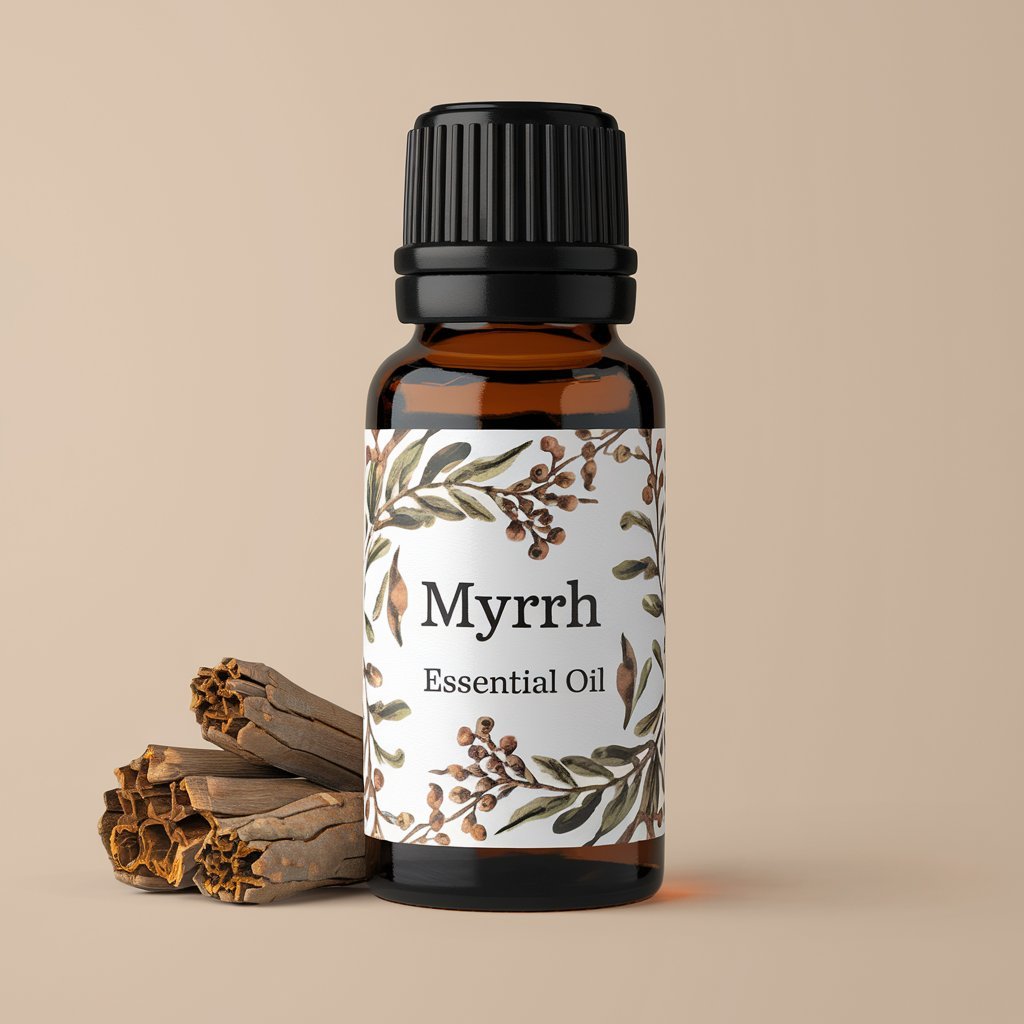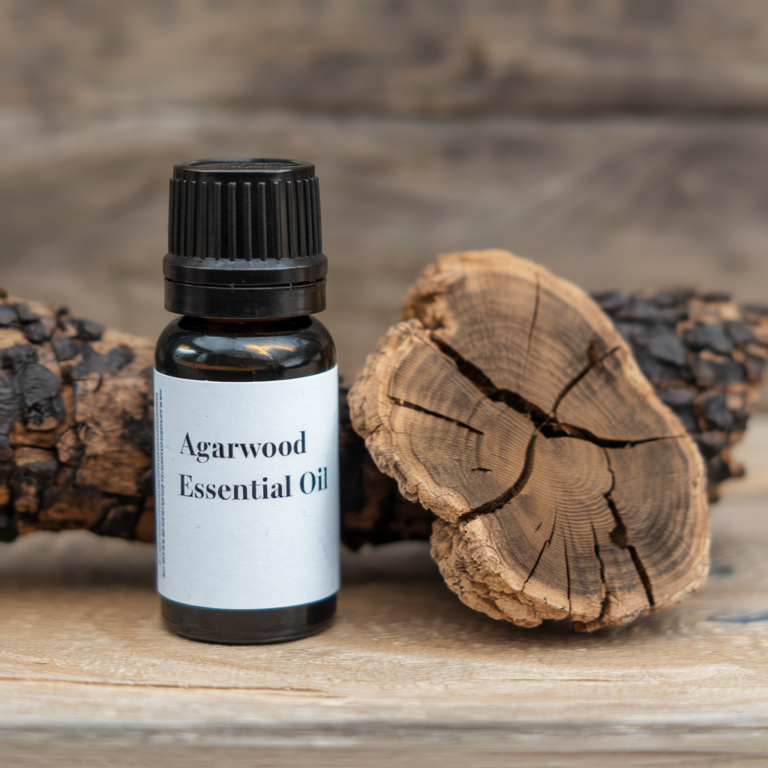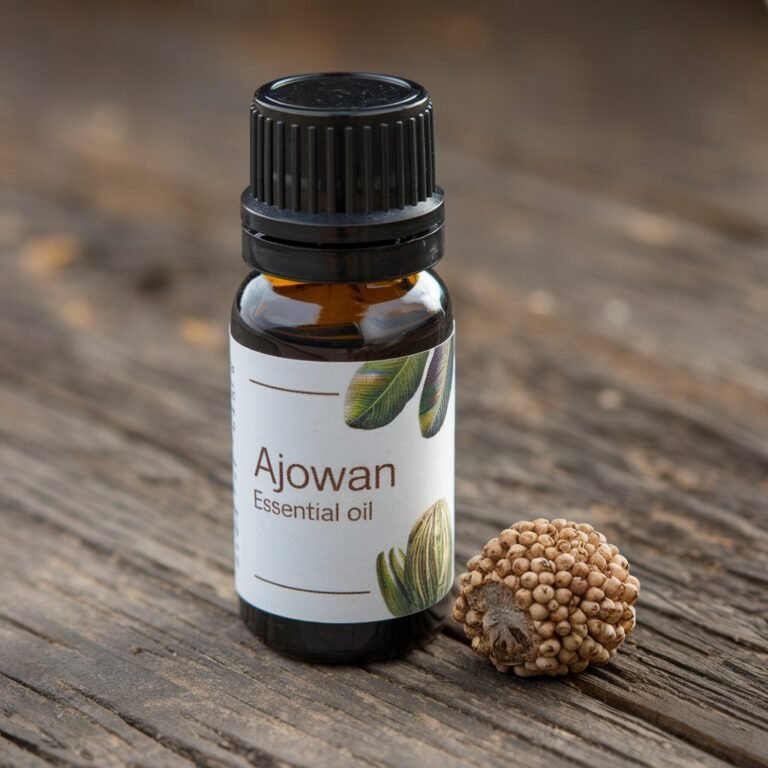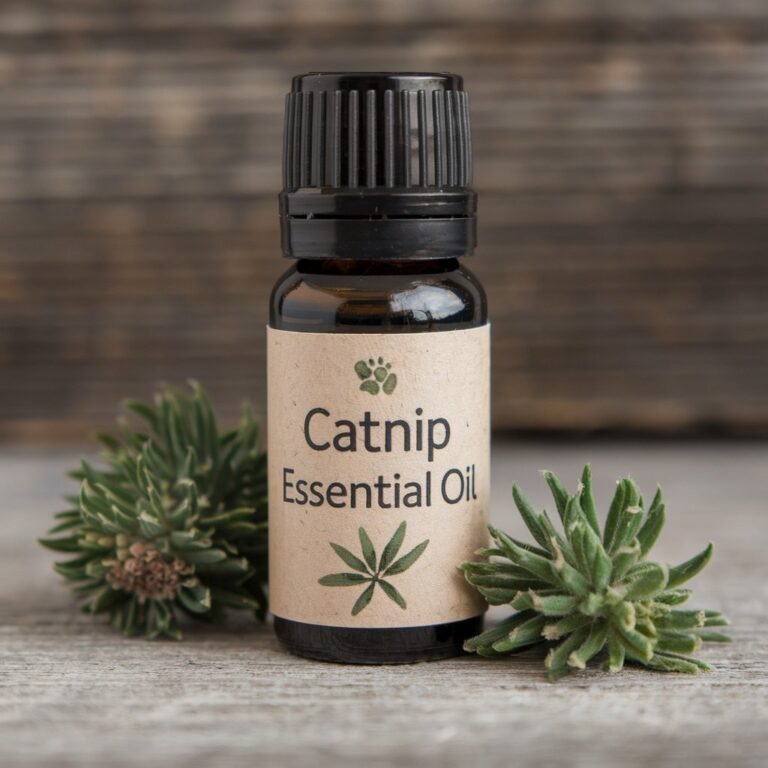Myrrh Essential Oil
Have you ever wondered about the ancient secrets that modern science is beginning to understand? Myrrh essential oil, a cornerstone of ancient rituals and medicine, is having quite the renaissance. It seems like everyone is talking about this age-old remedy, revered throughout history for its healing properties. Let's explore why myrrh oil is making such a significant comeback.
Recommended Brands:
Myrrh Essential Oil by Rocky Mountain Oils
What is Myrrh Essential Oil?
Myrrh essential oil is an aromatic resin derived from the Commiphora myrrha tree, which is native to East Africa and the Arabian Peninsula. This oil has been valued for thousands of years, being famously used in ancient Egypt for its therapeutic properties.
Myrrh oil is extracted from the tree through a process where the bark of the tree is cut and the sap, or resin, is allowed to dry and harden. This resin, rich in complex compounds like terpenoids and sesquiterpenes, is then steam distilled to produce the essential oil. The result is a dark, rich oil with a warm, earthy scent that has captured the imagination and intrigue of many throughout history.
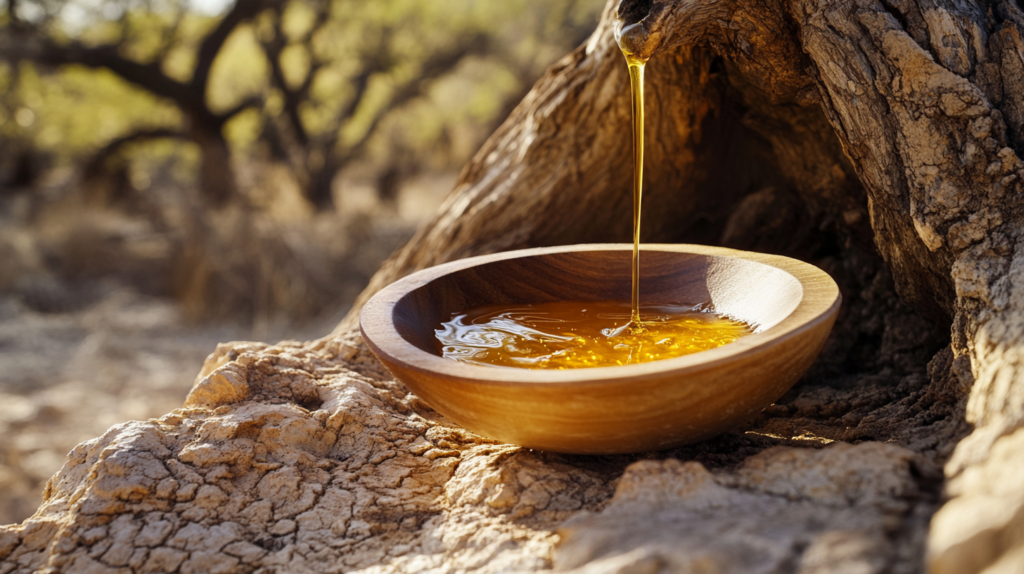
Historical Significance of Myrrh
The historical narrative of myrrh is both fascinating and influential. Known as a gift fit for kings, myrrh’s most famous mention is in the biblical story of the Magi, who brought gold, frankincense, and myrrh to baby Jesus. But its significance extends beyond religious texts.
In Ancient Egypt, myrrh was used for embalming practices, incense, and perfumery. The Greeks and Romans utilized it as an anointing oil and for medicinal purposes. Doctors in ancient times, such as Hippocrates, touted its health benefits, prescribing it for ailments ranging from indigestion to serious infections. These historical traditions underline myrrh’s enduring value and the wisdom of ancient practices that are evidenced scientifically today.
The Benefits of Myrrh Essential Oil
Antimicrobial Properties
Myrrh essential oil is renowned for its potent antimicrobial properties. It effectively combats various bacteria and fungi, making it a popular choice for supporting the immune system. Studies show that myrrh can inhibit the growth of harmful bacteria such as E. coli and Staphylococcus aureus, underlining its potential as a natural disinfectant.
Antioxidant Effects
The oil is a powerful antioxidant, combating free radicals that can lead to chronic diseases and aging. This is due to the presence of compounds like sesquiterpenes, which protect body cells from oxidative stress.
Anti-inflammatory Actions
Known for its anti-inflammatory properties, myrrh essential oil can provide relief from inflammation and associated pain. It's commonly used to support joint and muscle health, offering support to those with arthritis or post-workout soreness.
Skin Health
Myrrh’s benefits extend to skincare, where it is praised for its rejuvenating properties. It can support a healthy complexion, reduce the appearance of fine lines and wrinkles, and soothe irritated skin. Many skincare products incorporate myrrh oil to calm issues like eczema or to speed up the healing of minor skin abrasions.
Respiratory Support
For respiratory health, myrrh essential oil’s soothing properties help ease symptoms associated with colds and congestion. A steam inhalation with myrrh oil can provide effective relief from respiratory tract infections and promote easier breathing.
Emotional Well-being
On the emotional spectrum, the warm, woody aroma of myrrh essential oil is grounding and calming. It’s often used in diffusers or aromatherapy practices to enhance meditation or to create a tranquil ambiance at home.

Recommended Brands:
Myrrh Essential Oil by Rocky Mountain Oils
Pros and Cons of Myrrh Essential Oil
To better understand whether myrrh oil is right for you, let's break down its advantages and potential drawbacks.
| Pros | Cons |
|---|---|
| Potent antimicrobial properties | May cause skin irritation in some |
| Powerful antioxidant | Strong scent not favored by everyone |
| Anti-inflammatory benefits | Can be expensive |
| Supports skin and respiratory health | Possible allergic reactions |
| Enhances emotional well-being | Not suitable during pregnancy |
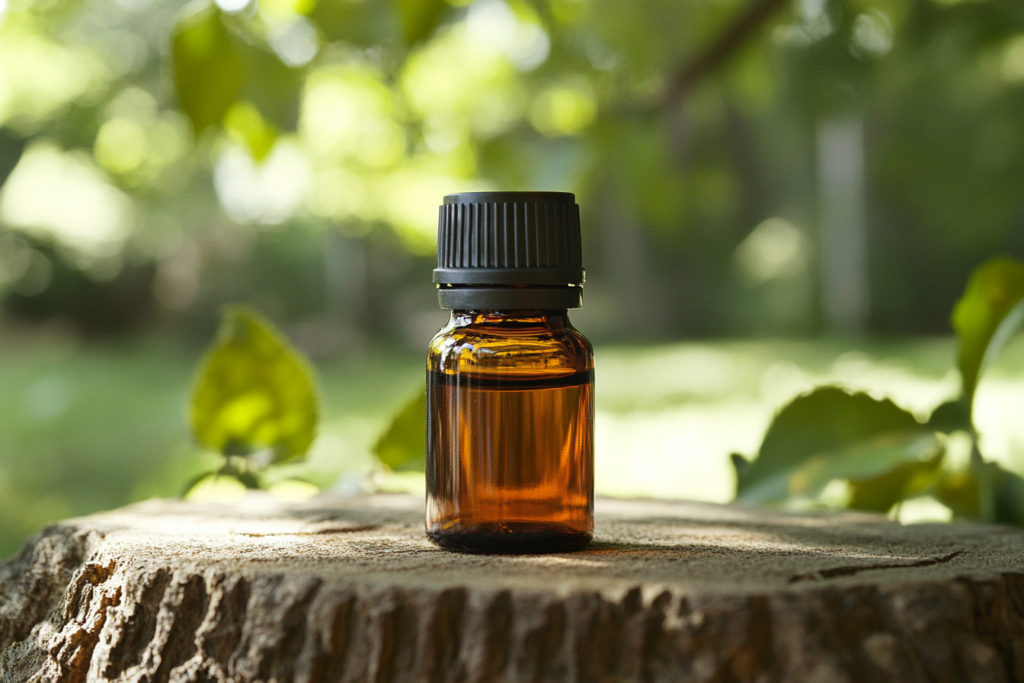
How to Use Myrrh Essential Oil
Aromatic Use
For aromatic benefits, myrrh essential oil is a popular choice in diffusers. Its soothing scent can enhance home ambiance or meditation practices. Simply add a few drops to a diffuser or an aromatherapy bracelet.
Topical Application
Topically, myrrh oil can be diluted with a carrier oil like coconut or jojoba oil before applying to the skin. It can be massaged into areas of pain for relief, or applied to a cotton ball and lightly dabbed on skin blemishes and irritations.
Oral Health
In oral care, a diluted myrrh oil mix can be used as a mouth rinse to promote healthy gums and freshen breath. It’s important to ensure you are using therapeutic-grade oil if applying orally.
Inhalation Techniques
For respiratory relief, adding a few drops to hot water and inhaling the steam can alleviate congestion and support the respiratory system.
How Myrrh Essential Oil is Made
The process of making myrrh essential oil begins with harvesting the sap from the Commiphora myrrha tree. It is collected, dried, and subjected to steam distillation to extract the oil. This meticulous process ensures that the oil retains its therapeutic properties, capturing all the naturally occurring resins, gums, and essential compounds found in myrrh.
Myrrh Essential Oil Safety and Precautions
Like all concentrated essential oils, myrrh should be used with care. It's important to dilute it properly, especially when used topically. Always perform a patch test before applying it broadly to ensure there are no adverse reactions. Pregnant women, nursing mothers, or individuals with certain medical conditions should consult a healthcare professional before using myrrh essential oil.
The Future of Myrrh Essential Oil
As our understanding of natural remedies deepens, the future of myrrh essential oil looks promising. Continued research into its diverse applications, from healthcare to wellness industries, suggests that myrrh will maintain its place in both traditional and new-age healing practices. Its ancient allure and robust properties make myrrh relevant even in our modern, health-conscious society.
Recommended Brands:

